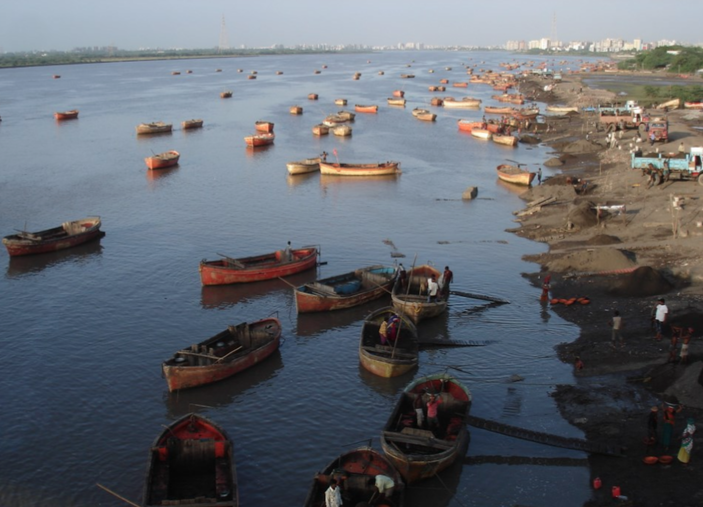Case-study /
Institutionalizing climate resilience within urban local bodies in India

Introduction
Surat city, also known as the “Diamond City” or the “Textile City”, is located on the river Tapi and, with a population of 4.4 million, is India’s 12th and Gujarat’s 2nd most populous city. The city lies in a flood plain area and the southwest area of the city hosts a number of creeks.
Rapid industrialization, heavy migration from various other parts of India, and the merging of villages due to an extension of city limits has seen the population of Surat almost double in the past decade. This increased population density, and other factors including repetitive floods, the lack of a safe and adequate water supply, changing rainfall patterns, rapid industrial development activities and the city’s riverside location and unequal socio-demographic structure, are contributing to an increased disease burden (vector borne and water borne) in Surat city.
These problems are interrelated and complex, and so require integrated solutions, which in turn need platforms for collaboration and deliberations for developing such solutions.
With the intention to address the above problems, the Surat Climate Change Trust (SCCT) was established in June 2012 under the Bombay Public Trust Act, 1950, in Surat city to engage in policy advocacy regarding urbanization and climate change, to assess urban growth scenarios and to advise local government on sustainable habitat development.
Objectives
The objective of forming the SCCT was to establish an institution within the city which:
- Is sustainable beyond the current ACCCRN project period.
- Can provide sustainable and neutral platform which could bring key institutions together to identify integrated solutions for complex urban problems.
- Has support from national, state and community institutions.
- Acts as a neutral entity which can include technical experts and public at large within the decision making process.
- To facilitate capacity building and to develop urban climate change resilience.
- To support and to undertake interventions that increase resilience of vulnerable communities that are impacted by urbanization and climate change.
- To spread awareness about techniques, technology and practices related to urbanization and climate change.
Committee:
SCCT has representatives from institutions including Centre for Social Studies (CSS), Sardar Vallabhbhai National Institute of Technology (SVNIT), Irrigation department, Gujarat State Disaster management Authority (GSDMA), academic institutions and technical experts from the city.
Key outcomes and activities
Since its inception SCCT has:
- Found that networking with local institutions and subject experts to address climate change and its impact is an effective mechanism to assess and critically analyse their working practices and learn how to change their patterns of decision making.
- Achieved inter-departmental convergence in terms of information, knowledge sharing and technical support, thereby increasing cross-sector communitation and collaboration.
- Advocated within key government departments for the consideration of climate change as a criteria for future developments
- Managed to convince Surat Municipal Corporation to allocate a budget of 10 Million Rupees for climate change related activities.
The Trust is also spearheading two key interventions within the city:
- End to End Early Warning System (EWS): This intervention involves setting up an End-To-End Early Warning System to reduce the intensity of floods and resultant flood damage in Surat city. EWS will help provide timely flood information to city administration.
- Urban Health and Climate Resilience Centre (UHCRC): UHCRC is a first-of-its-kind dedicated research centre to work on urban health and building climate change resilience. The centre is expected to improve urban health management through evidence-based research, improved surveillance, and the development of operating procedures among city lifeline services departments.
- Read about measures being taken to address flooding in the city of Surat beyond its boundaries
- Read about an end-to-end early warning system for Ukai and local floods in Surat city
